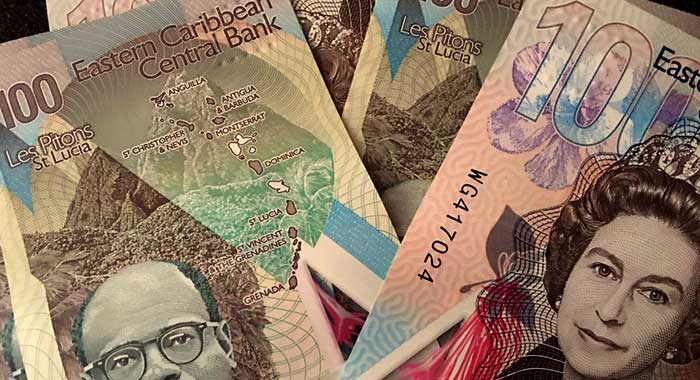The Government of St. Vincent and the Grenadines had received 10.1% more in revenue and grants at the end of July while total expenditure had increased 15.6% compared to the same period last year, Prime Minister Ralph Gonsalves has announced.
Up to July this year, the government had collected EC$476.5 million in revenue and grants, compared to EC$433 million over the same period in 2023.
Of the total revenue and grants, current revenue was up 11.6% from EC$403.2 million to EC$450.1 million, the prime minister said.
He said on the state-owned NBC Radio that the major items of revenue have increased — some more than others.
“Taxes on income and profits, gone up. Alien land holding licence and stamp duty and property transfer, they’ve gone up much more than property tax itself, which also went up a little,” the prime minister said.
The taxes on goods and services went up, the domestic VAT, also the VAT at the port, the excise duties, motor vehicle licences, vehicles surtax, sales and goods and services like the driver’s license, customs service charge.”
He said there were decreases in some categories, including earnings from the international financial services and Commercial and Intellectual Property Office (CIPO) registration fees.
“The CIPO registration fees are down because we’ve been giving a fair relief for people who didn’t comply,” Gonsalves said, adding that some people form companies but do not know that they have to submit annual returns.
“Many of them though are non-profit companies. Surprisingly, there are some big companies where the lawyers or the financial controllers of those companies don’t submit stuff on time,” the prime minister said.
“Naturally, I’m always less inclined to exercise a favorable consideration in places — if you have lawyers doing your business or accountants, financial controllers, they should do these things on a timely basis.”
total expenditure up 15.6%
As regards government spending, Gonsalves said total expenditure went up by 15.6%, of which current expenditure increased by 10.2% and capital expenditure went up by 41%.
“There’s a current account balance deficit of $10.4 million. That’s not so bad. And the overall balance is 96 million net of the Contingencies Fund — the capitalisation of the Contingencies Fund.”
He said he did not need to go through the details necessarily “but the month of July has been pretty good.
“I’ll just point out the overall balance, the deficit is a little higher than the current account balance, because we’re doing so much capital spending.”
The prime minister said capital spending by the end of July was EC$126 million, up from about EC$89 million year-on-year.
“But if you have that, you have to finance the deficit there from borrowings,” he said, adding, “But the month of July is pretty okay, but there’s some explanation we have to give.”
He explained that taxes collected on incomes and profits in July increased significantly in all categories.
“The individual tax increase was due substantially to the timing of the records of collections from the Inland Revenue Department. The increases in corporate tax collections came from payments from one significant company to the Inland Revenue Department later than their usual payment schedule. So it appeared in July when it should have appeared earlier.”
He said the increase in non-resident taxes was due to an increase in services related to two new consultant companies doing work with the government and having to pay withholding taxes.
“Then the tax collected on goods and services for the month of July also increased significantly because of the increase in the collection of the VAT and the interest levy.”
He said the increase in VAT was due also to the timing of the recording of the collections from the Inland Revenue.
“So some which have been in the month of June came over into the month of July,” Gonsalves said, adding, “So that June would not have looked as good as July.”
He said the increase in the interest levy is due to an increase in deposits in the Bank of St. Vincent and the Grenadines.
“And in July, we saw an increase in total grants because of some contributions which had been made after Beryl though total grants so far for the year are less than last year,” he said, referring to the category 4 hurricane that impacted the country on July 1.
The prime minister said the government had recorded an increase in expenditure to current grants to agencies of government, which went up by about 30%.
“That’s largely because a lot more money had to be transferred to BRAGSA (Roads, Buildings & General Services Authority), again, because of Beryl,” Gonsalves said.
“But that is the broad picture. As always, we have challenges but we are far from going to hell in a basket. But we have our challenges as you know, and I talk about them all the time with great honesty, the people are making good progress,” he said.







Not only that, when ULP do have new jobs it is for non Vincentians cause we don’t have qualified people, while the locals are paying the gigantic loans they are borrowing in the name of the Vincentian people; and stuffing their bank accounts with it.